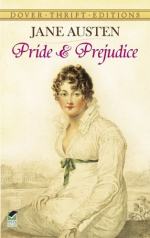|
This section contains 7,138 words (approx. 24 pages at 300 words per page) |

|
SOURCE: Newton, Judith Lowder. “Pride and Prejudice: Power, Fantasy, and Subversion in Jane Austen.” Feminist Studies 4, no. 1 (February 1978): 27-42.
In the following essay, Newton examines the power dynamic in Pride and Prejudice, arguing that although men dominated Austen's society in economic and social privilege, Elizabeth Bennet represents a fantasy of female autonomy.
To read Jane Austen's letters—with their steady consciousness of bargains, pence, and shillings—is to be aware of one small but nagging way in which she experienced the restrictions of being an unmarried middle-class woman: she had little money, and she had almost no access to more. In 1813, for example, the year Pride and Prejudice was published, Jane Austen, her mother, and her sister, Cassandra, were dependent for their living on three sources: a small income of Mrs. Austen's, a small legacy of Cassandra's, and the £ 250 provided annually by four of the Austen brothers.1 The...
|
This section contains 7,138 words (approx. 24 pages at 300 words per page) |

|


